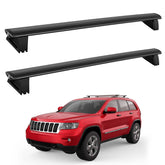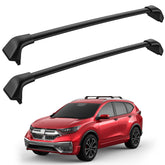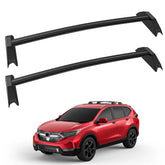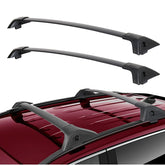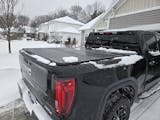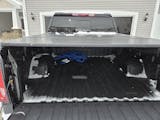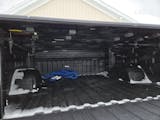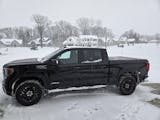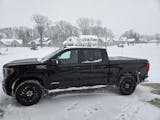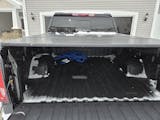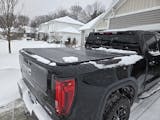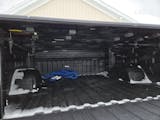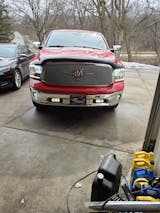What type of roof rack for roof top tent?
Imagine the thrill of camping under a sky full of stars, high above the action, safe from curious wildlife and uneven terrain. The appeal of rooftop tents is their convenience and comfort. But this setup requires more than just strapping a tent to the roof of your vehicle. The right roof rack is essential—a sturdy, reliable foundation that can support the weight of the tent and its occupants while withstanding the forces of travel, wind, and off-road bumps.
There are so many options for roof racks, and finding the right one is no easy task. In this article, we'll take a look at the different types of roof racks to help you make the right choice for your needs.
Can I mount a roof tent to a roof rack?
Of course, you can mount a rooftop tent on a roof rack, but not all roof rack accessory types are suitable for mounting a rooftop tent. Generally, a rooftop tent can be mounted on a pole that uses anchor points, vehicle-specific rails, or gutter mounting legs.
In addition, it is important to understand the following when considering whether your roof rack can support a rooftop tent:
- Two key load factors: dynamic and static weight capacity. Dynamic weight capacity refers to the weight your car's roof can handle while it is in motion. Static weight capacity, on the other hand, applies when the car is stationary and the tent is occupied.
- Properly assess the load capacity of your vehicle and roof rack, and do not exceed the total weight of all items on the roof.
- Distribute the weight evenly, and the weight of the items should be evenly distributed on the rack, not concentrated on one end.

Why is the right roof rack important?
Before we dive into the types of roof racks, let's first understand why having the right one is so important. A roof rack is more than just a mounting surface; it's a critical link in securing your tent, ultimately affecting the safety and enjoyment of your adventure. If you choose the wrong one, you could end up with a rack that can't handle the weight, a wobbly tent, or worse, a dangerous accident on the trail. Here's why choosing the right roof rack is so important:
Safety and stability
When you are driving on rough terrain or winding highways, your roof rack is not fixed properly, causing the tent to shake, making your car unbalanced, and even putting you at risk of an accident. A suitable and stable roof rack can firmly fix the tent and withstand any harsh test of off-road adventures and long-distance travel, ensuring your safety when driving and parking.
Weight distribution
Roof racks distribute weight across the roof of your car, but not all roof racks are created equal. High-end roof racks are designed to evenly distribute weight, reducing pressure points and minimizing impact on your car's roof structure. Improper weight distribution can damage your roof and even affect how your car handles on the road.
Load capacity
Each roof rack has a specific load capacity, and when you want to install a rooftop tent on your roof rack, it is important to consider the load capacity of the rack. Rooftop tents usually weigh between 100 and 200 pounds, and some are even heavier. Therefore, the roof rack you choose needs to have sufficient load-bearing capacity, and its load limit needs to match the weight of the tent so that it can easily support the tent without compromising safety. When choosing, it is best to choose a sturdy and durable rack designed for outdoor adventures.

Ease of installation and compatibility
Not all roof racks are compatible with every vehicle or tent type. Some roof racks are custom-made for specific vehicle models, ensuring an exact fit and easy installation, while other racks may require adjustments. A compatible rack will allow for straightforward installation and removal, making it suitable for frequent use. Different roof tents and vehicles require specific roof rack systems. Before installing the rack, ensure compatibility between the roof tent, vehicle, and roof rack.
Weather resistance
Exposure to rain, snow, heat, and dust can quickly wear out a poorly made roof rack, leading to rust, corrosion, and even structural damage. Durable roof racks are made from corrosion-resistant materials like aluminum or coated steel, allowing your rack to last longer.
5 Types of roof tack for roof top tent
Installing a rooftop tent on your vehicle means choosing the right roof rack system to support its weight, ensure safety, and optimize performance. Here’s a comprehensive look at five popular roof racks that are particularly well suited to rooftop tents, each with unique benefits:
Cross bars
Crossbars are one of the most common and versatile options for rooftop tents. They provide a simple and practical mounting base. They are suitable for light to medium-sized rooftop tents on SUVs, cars and small trucks. Crossbars are easy to install and remove. Compared with other rooftop racks, they are more affordable and a convenient choice for occasional campers. The aerodynamic design makes it effective in reducing wind noise. Unfortunately, the crossbar has a limited load-bearing capacity. During use, pay attention to its weight limit in time to ensure that it can bear the weight of the tent and its occupants.

Full-length roof racks
Full-length roof racks extend the entire length of the vehicle's roof and can cover the entire roof of the vehicle, providing maximum load distribution and storage capacity. These roof racks are popular with off-roaders and campers for their sturdy construction and multi-use potential. It has integrated mounting points or rails to mount a variety of accessories. Full-length roof racks have excellent load-bearing capacity and stability, distributing weight evenly across the roof of the vehicle. They are ideal for heavy tents and can mount additional equipment such as jerry cans, tool boxes, or solar panels. It is perfect for heavier roof tents and long, rugged trips off-road or in challenging terrain.

Bed racks for pickup trucks
Bed racks are a top choice for pickup truck owners who prefer to mount their rooftop tent on the bed of their truck rather than on the roof. These racks provide a solid foundation that maintains vehicle stability without adding height to the truck's profile. Bed racks keep the rooftop tent low, improving aerodynamics and handling. They also free up the truck's roof for more cargo or completely freeing up space. Bed racks are often vehicle-specific and may limit storage space in the bed. For some campers, this may mean finding an alternative location for extra gear. All in all, it's perfect for pickup truck owners looking for stability, convenience, and a low height for off-roading and hauling equipment.

Gutter-mounted racks
Gutter mounts attach directly to your vehicle's gutters, and gutter mounts utilize these gutters for anchoring, providing a simple and durable foundation for roof-mounted equipment. They are commonly used on older cars, vans, and some 4WDs that are equipped with traditional gutters. Gutter mounts are simple to install and have a high load capacity. They are more affordable than full-length or platform racks and do not require extensive modifications. However, they may have weight restrictions compared to other options.

Factory roof rails
Factory roof rails are commonly included on SUVs, station wagons, and some cars, providing a convenient base for mounting crossbars or attaching a roof-top tent. These rails run lengthwise along the roof of the vehicle and serve as attachment points for crossbars or other compatible roof racks. Factory rails are easy to use, require no additional drilling or complicated installation, and allow for quick installation with compatible crossbars. Factory rails typically have lower load limits, and their compatibility with roof-top tents depends on the vehicle's weight specifications. They are not suitable for heavier roof-top tents or rugged off-road sections. They are suitable for light to medium-duty tents on vehicles equipped with factory rails, especially for casual camping trips on paved roads.

Conclusion
Choosing the right roof rack for your rooftop tent is a careful balancing act that involves considering factors such as safety, load capacity, compatibility, and durability. Whether you’re a casual weekend camper or a seasoned off-roader, investing in a high-quality roof rack that fits your needs will transform the camping experience—providing a safe and secure foundation for rooftop lodging.
Each type of roof rack has its advantages, from factory roof rails that offer a convenient, cost-effective option to backbone-mounted systems and platform racks that offer high load capacity and ample storage for extra gear. By understanding the specific benefits and limitations of each rack, you can confidently select a rack that not only supports your tent but also improves your vehicle’s overall practicality and adventure-readiness.
When paired with the right roof rack, a rooftop tent becomes more than just a camping accessory; it’s a gateway to the freedom of the open road, an invitation to explore places less traveled, and a reminder that sometimes the best journeys are spent under the stars.
Featured Products
- $83.99
- $83.99
- Unit price
- / per
- $85.99
$138.90- $85.99
- Unit price
- / per
- $69.99
- $69.99
- Unit price
- / per
- $98.99
- $98.99
- Unit price
- / per
